Publicaties
Wetenschappelijke publicaties
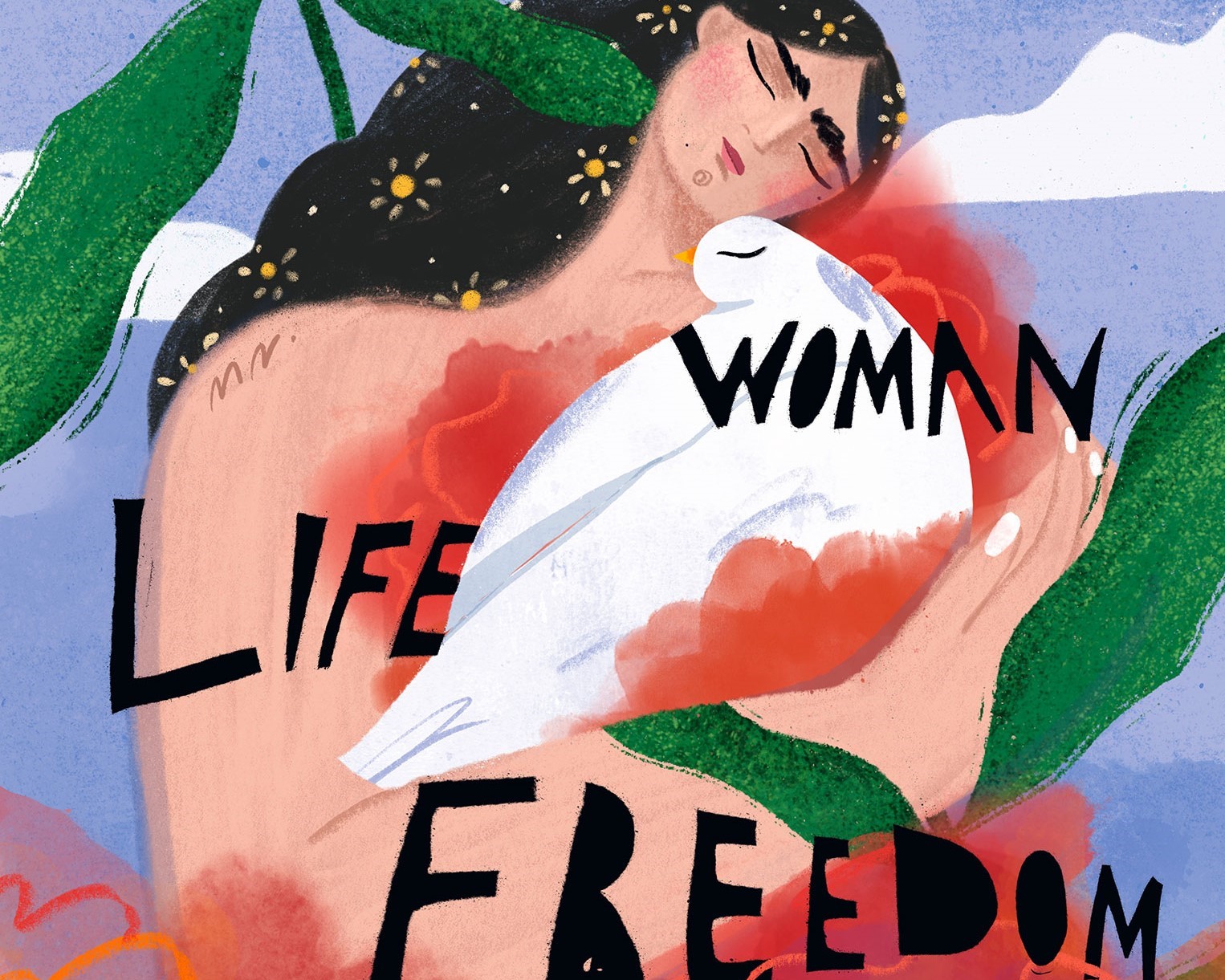
Women’s rights activists protesting for a democratic Iran counteract armed police on the streets with non-hierarchical leadership, a rhizomatic network, transnationality and flash mobs.
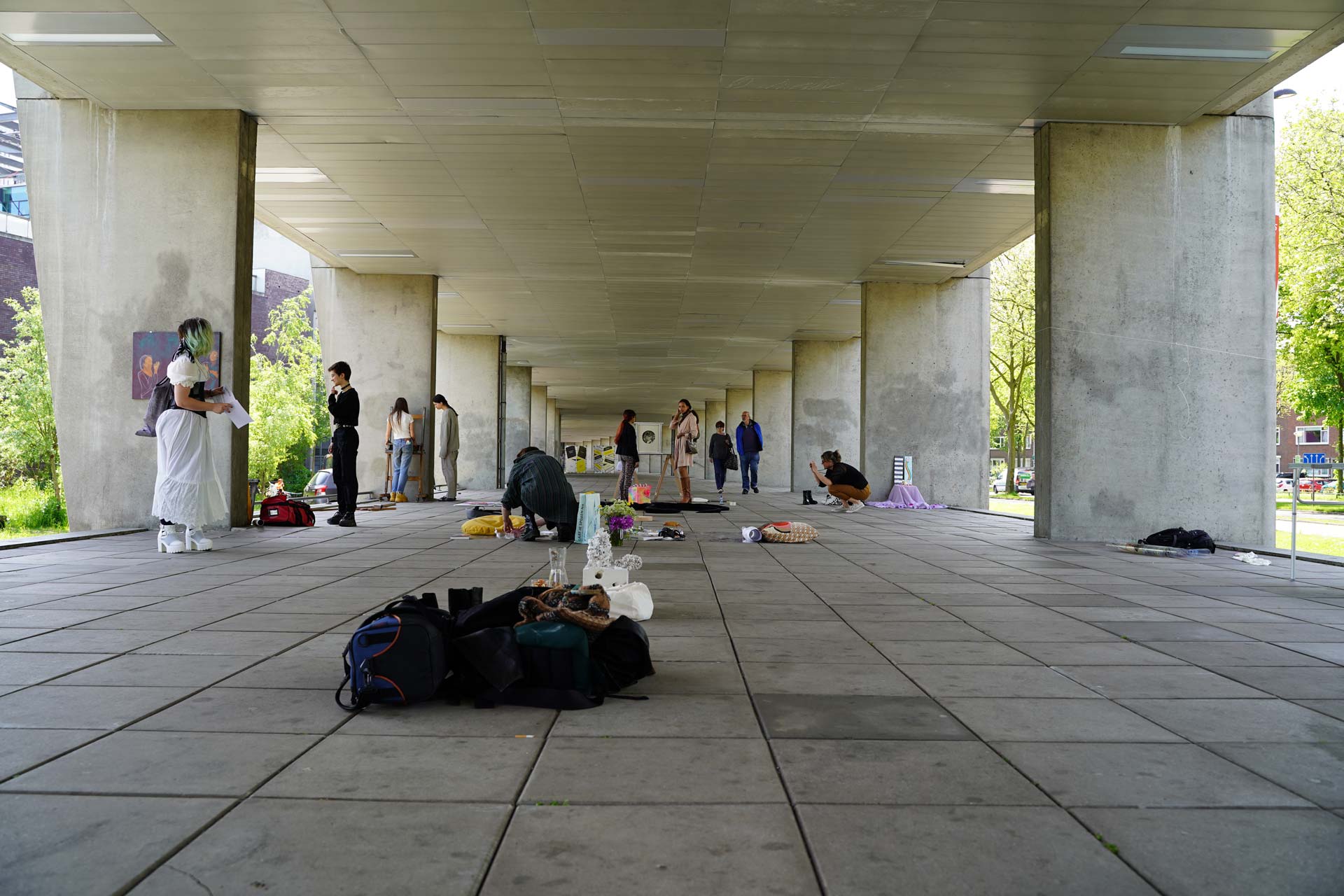
Halleh Ghorashi en Firoez Azarhoosh over het doorbreken van de macht van de vanzelfsprekendheid. Daarbij ligt een cruciale rol voor tussenpersonen als verbinders tussen de systeemwereld van de professional en de leefwereld van de burger.
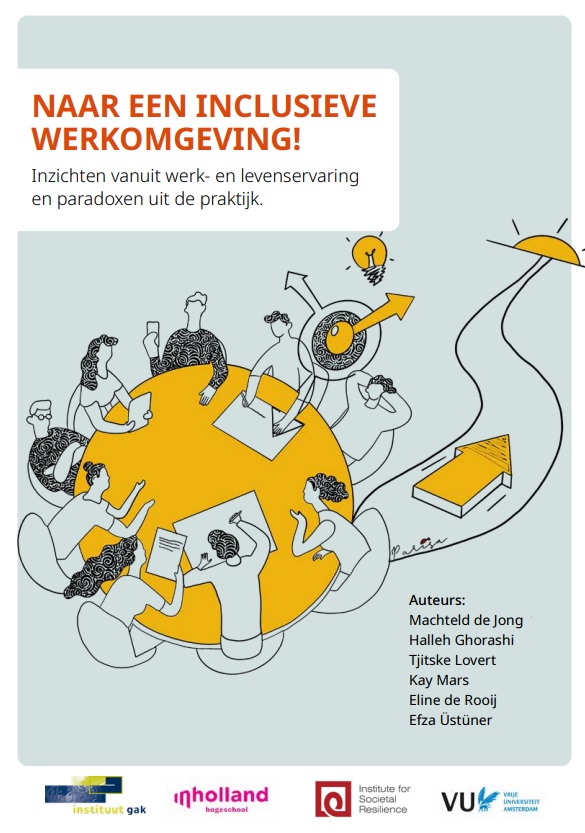
Het rapport Naar een inclusieve werkomgeving! Inzichten vanuit (levens)verhalen en paradoxen uit de praktijk dat door onderzoekers van Hogeschool Inholland en de Vrije Universiteit Amsterdam in de periode mei 2019 – november 2021 is uitgevoerd, met een subsidie van Instituut Gak, biedt op een bijzondere manier inzicht in het fenomeen ongelijke kansen op de Nederlandse arbeidsmarkt.
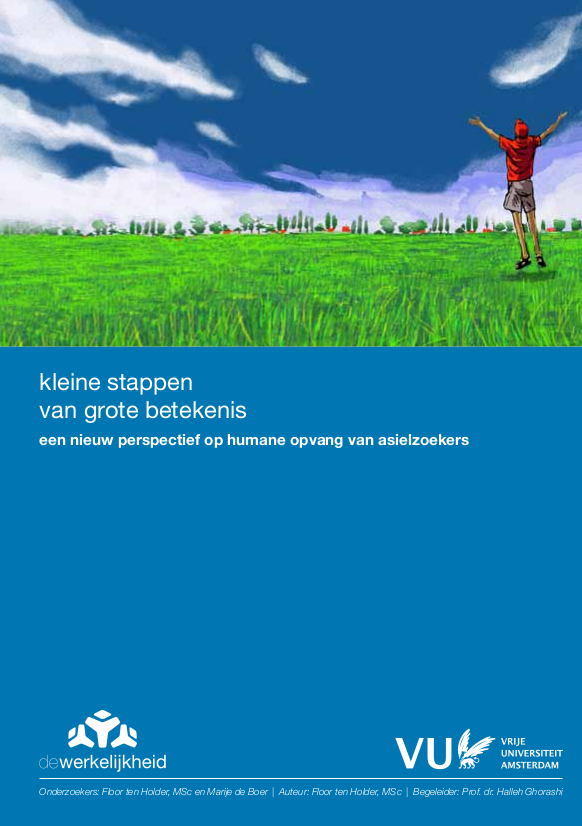
Kleine stappen van grote betekenis: een nieuw perspectief op humane opvang van asielzoekers (auteur: F. ten Holder, begeleiding H. Ghorashi). Amsterdam: Stichting de Vrolijkheid.
In this overview, you find all academic publications by Halleh Ghorashi.
2023
- Ghorashi, H. (2023) Structurele ‘bite’ van diversiteit en inclusive. Beleid en Maatschappij (14)2: 117-133, doi: 10.5553/BenM/138900692023050002009.
- Ghorashi, H., K. Boersma & F. Azarhoosh (2023) Tussen-denken en inclusief besturen rond armoede(PDF), In: Overmans, T., M. Honingh en M. Noordegraaf (red.), Werken aan maatschappelijke vraagstukken: verbindende bestuurskunde? In het kader van 50 jaar jubileum van Vereniging voor Bestuurskunde (VB). Boom, pp. 97-113.
- Ghorashi (2023) Home and the Politics of Location and Displacement, In: Boccagni, P. (ed.) Handbook on Home and Migration, Edward Elgar Publishing, 170-183.
- Ghorashi, H. (2023) Het belang van Insider-outsider perspectief (the importance of insider-outsider perspective)(PDF). Mens & Maatschappij, 98(3): 270-274. (plus de pdf in de bijlage)
- Ghorashi, H., Azarhoosh, F. and F. Boersma (2023) Inclusief besturen: Met tunnelvisie en cijferdenken komen we er niet. Tijdschrift voor Sociale Vraagstukken, 4: 30-35 and online:https://www.socialevraagstukken.nl/inclusief-besturen-met-tunnelvisies-komen-we-er-niet/
2022
- Pozzo, M., & Ghorashi, H. (2022). How liminality enhances conviviality through multilingual co-creations: Young refugees in the Netherlands. Current Sociology, 70(5): 682-702.
- Ghorashi, H. (2022). “Tussenruimtes” als broedplaats van verdraagzaamheid. In: Marcel ter Hooven (red.) Ware Tolerantie: Hoe we onszelf kunnen zijn en elkaar toch kunnen verdragen. Amsterdam: Van Gennep, pp. 89-99.
- Ghorashi, H. (2022) The Retreat of Idealism: Rethinking Engagement within Polarized Societies, In: Elahi, J, S. Trienekens & H. Ramsoedh (eds.), Against Better Judgement: Rethinking Multicultural Society. Leiden: Brill, pp. 24-33.
2021
- Younes, Y., H. Ghorashi & E. Ponzoni (2021) Conflicting Experiences With Welcoming Encounters: Narratives of Newly Arrived Refugees in the Netherlands. Social Inclusion 9 (4): pp. 222-231.
- Holle, F., M.C. Rast & H. Ghorashi (2021) Exilic (Art) Narratives of Queer Refugees Challenging Dominant Hegemonies. Frontiers in Sociology 6: pp. 1-16.
- Ghorashi, H. (2021) Failed Promise of Equality: Iranian women’s integration in the Netherlands. International Migration 59 (4): pp. 88-104.
- Ghorashi, H. (2021) normalising power and engaged narrative methodology: refugee women, the forgotten category in the public discourse. Feminist Review 129: pp. 48-63.
2020
- Larruina, R., H. Ghorashi (2020) Box-ticking exercise or real inclusion? Challenges of including refugees’ perspectives in EU policy. In: Gozdziak, E., I. Main & B. Sutter (2020) Europe and the Refugee Response: A Crisis of Values? London: Routledge. pp. 128-148.
- Smets, P., B. Reitsma, H. Ghorashi (2020) Community Servive Learning and the issue of power: University Students' engagement with disadvantaged neighbourhoods in Amsterdam. In: Crul, M., L. Dick, H. Ghorashi & A. Valenzuela Jr. (2020) Scholarly engagement and decolonisation: Views from South Africa, The Netherlands and the United States. Stellenbosch: African Sun Media. pp. 277-299.
- Dick, L., H. Ghorashi & A. Valenzuela Jr. (2020) Conclusion: Mirrors of reflection. In: Crul, M., L. Dick, H. Ghorashi & A. Valenzuela Jr. (2020) Scholarly engagement and decolonisation: Views from South Africa, The Netherlands and the United States. Stellenbosch: African Sun Media. pp. 371-384.
- Ponzoni, E., K. Mars & H. Ghorashi (2020) De kracht van een alternatief verhaal: De complementaire bijdrage van burgerinitiatieven aan inclusie van vluchtelingen in de Nederlandse samenleving. Amsterdam: Vrije Universiteit.
- Ghorashi, H. (2020) Diversiteit in organisaties: noodzaak en uitdaging. In: Bulten, C. D. J., C. F. Perquin-Deelen, M. H. C. Sinninghe Damsté & K. J. Bakker (eds.). (2020) Diversiteit: een multidisciplinaire terreinverkenning. Alphen aan den Rijn: Wolters Kluwers.
- Crul, M., L. Dick, H. Ghorashi & A. Valenzuela Jr. (2020) Scholarly engagement and decolonisation: Views from South Africa, the Netherlands, and the United States. In: Crul, M., L. Dick, H. Ghorashi & A. Valenzuela Jr. (2020) Scholarly engagement and decolonisation: Views from South Africa, The Netherlands and the United States. Stellenbosch: African Sun Media.
- Ponzoni, E., H. Ghorashi & M. Badran (2020) Naar een structurele plek voor het perspectief en visie van vluchtelingen in beleidsvorming. Amsterdam: ISR/Refugee Academy.
- Crul, M., L. Dick, H. Ghorashi & A. Valenzuela Jr. (2020) Scholarly engagement and decolonisation: Views from South Africa, The Netherlands and the United States. Stellenbosch: African Sun Media.
- Ghorashi, H. (2020). Taking racism beyond Dutch innocence. European Journal of Women's Studies doi:10.1177/1350506820978897.
- Rast, M. C., Y. Younes, P. Smets, & H. Ghorashi (2020) The resilience potential of different refugee reception approaches taken during the ‘refugee crisis’ in Amsterdam. Current Sociology 68(7): pp. 853-871.
- Vijlbrief, A., S. Saharso & H. Ghorashi (2020) Transcending the gender binary: Gender non-binary young adults in Amsterdam. Journal of LGBT Youth 17(1): pp. 89-106.
2019
- Kovács, Z., P. Smets & H. Ghorashi (2019) The Game of Participation in Amsterdam East: An Alternative to the Neoliberal or a Neoliberal Alternative? In: J.K. Fisker, L. Ghiappini, L. Pugalis & A. Bruzzese (eds.) Enabling Urban Alternatives: Crises, Contestation, and Cooperation. Singapore: Palgrave Macmillan, pp. 133-155.
2018
- Ghorashi, H. (2018) Challenges of Integration and Belonging: Iranians in the Netherlands. In: M. Mostafavi Mobasher (ed.), The Iranian Diaspora: Challenges, Negotiations, and Transformations. Austin: University of Texas Press, pp. 74-92.
- Leyerzapf, H., P. Verdonk, H. Ghorashi & T.A. Abma (2018) “We are all so different that it is just… normal.” Normalization practices in an academic hospital in the Netherlands.Scandinavian Journal of Management, 34: 141-150.
- Rast, M. & H. Ghorashi (2018) Dancing with “The Other”: Challenges and Opportunities of Deepening Democracy through Participatory Spaces for Refugees. Social Inclusion, 6(1): 188-198.
- Ghorashi, H., M. de Boer & F. ten Holder (2018) Unexpected agency on the threshold: Asylum seekers narrating from an asylum seeker centre. Current Sociology, 66(3): 373-391.
- Ghorashi, H. (2018) Commentary: Unsettling friendship and using friendship to unsettle.
Sage Journals, Urban Studies. 55(3): 655-661. - Waldring, I., M. Crul & H. Ghorashi (2018) The Ability to Deal with Difference: Turkish-Dutch Professionals as Go-Betweens in the Education Sector. New directions for child and adolescent development, 160: 45-58.
- Davis, K., Ghorashi, H. & Smets, P. eds. (2018) Contested Belonging: Spaces, Practices, Biographies.Bingley: Emerald.
- Davis, K., Ghorashi, H., Smets, P. & Eijberts, M. (2018) Introduction. In: K. Davis, H. Ghorashi & P. Smets (eds) Contested Belonging: Spaces, Practices, Biographies. Bingley: Emerald, pp. 1-16.
- Leyerzapf, H., Abma, T., Verdonk, P. & Ghorashi, H. (2018) Meaningful Culturalization in an Academic Hospital: Belonging and Difference in the Interference Zone Between System and Life World. In: K. Davis, H. Ghorashi & P. Smets (eds) Contested Belonging: Spaces, Practices, Biographies. Bingley: Emerald, pp. 209-233.
- Kian, L. & Ghorashi, H. (2018) ‘Sometimes I Feel More Moroccan than Dutch”: Identity and Belonging in Second-Generation Iranian-Dutch Women. In: K. Davis, H. Ghorashi & P. Smets (eds) Contested Belonging: Spaces, Practices, Biographies. Bingley: Emerald, pp. 333-357.
- Ghorashi, H., Davis, K. & Smets, P. (2018) < Epilogue: Reflections on Belonging, Otherness and the Possibilities of Friendship. In: K. Davis, H. & P. Smets (eds) Contested Belonging: Spaces, Practices, Biographies. Bingley: Emerald, pp. 379-391.
- Ghorashi, H. (2018) Decolonizing the Islamic Other: The Changed Conditions of Critical Thinking. In: Melissa F. Weiner & Antonio Carmona Báez (eds.) Smash the Pillars: Decoloniality and the Imaginary of Color in the Dutch Kingdom. Lanham: Lexington Books, pp. 185-197.
2017
- Ghorashi, H. & Suanet, B. (2017) Introductie voor de special issue over vluchtelingen: Pleidooi voor een gelaagde benadering van vluchtelingenproblematiek. Mens & Maatschappij 92, 4: 353-357.
- Ghaemnia, S., H. Ghorashi & M. Crul (2017) Grootse dromen, uitgekomen? Mens & Maatschappij, 92(4): 421-445.
- Ghorashi, H. (2017) Negotiating belonging beyond rootedness: Unsettling the sedentary bias in the Dutch culturalist discourse. Ethnic and Racial Studies, 40(14): 2426-2443.
- Ghorashi, H. (2017) Rethinking diversity beyond dichotomies of self-other. In: H. Alzheimer, S. Doering-Manteuffel, D. Drascek & A. Treiber (eds.) Jahrbuch Für Europäische Ethnologie. Kornwestheim: Schöningh, p. 169-182.
- Ghorashi, H. (2017) A Shifting Quest for a Sense of Home.
In: S. Dijkstra, L. van Doorn & J.C. van Pelt (eds.) Seeking Home in a Strange Land: Trues stories of the changing meaning of home. Utrecht: Stili Novi, pp. 135-155. - Ghorashi, H., M. de Boer & F. ten Holder (2017) Unexpected agency on the threshold: Asylum seekers narrating from an asylum seeker centre. Current Sociology
- Ponzoni, E., H. Ghorashi & S. van der Raad (2017) Caught between norm and difference: Narratives on refugees’ inclusion in organizations. Equality, diversity and inclusion: An international Journal
- Rouvoet, M., M. Eijberts & H. Ghorashi (2017) Identification Paradoxes and Multiple Belongings: the Narratives of Italian Migrants in the Netherlands. Social Inclusion, 5(1): 105-116.
- Rassismus und der “undankbare Andere” in den Niederlanden,
In: K. Fereidooni & M. El (Hrsg.) Rassimuskritik und Widerstandsformen.
Heidelberg: Springer VS, pp. 61-80. - Ghorashi, H. (2017) Negotiating belonging beyond rootedness: Unsettling the sedentary bias in the Dutch culturalist discourse.
Ethnic and Racial Studies, 40(14): 2426-2443
2016
- Eijberts, M. & Ghorashi, H.: Biographies and the doubleness of inclusion and exclusion. Social Identities: Journal for the Study of Race, Nation and Culture.
- Iranian Feminists and transnational contestations (together with R. Moghaddam). Labrys, 29.
- The normality and materiality of the dominant discourse: Voluntary work inside a Dutch asylum seeker centre (together with R. Larruina). Journal of Immigrant and Refugee studies, 14(2): 220-237.
- Caught in the middle? How women deal with conflicting pregnancy-advice from health professionals and their social networks (together with Schölmerich, V., Denktas, S., Groenewegen). Midwifery, 35: 62-69.
- “The Times They Are a-Changin’”.
In: M. Flikkema (ed.) Sense of Serving: Reconsidering the Role of Universities Now.Amsterdam: VU University Press, pp. 26-32. - Muslim Diaspora in the West. In: J. Stone, R. Dennis, P. Rizova, A. D. Smith, and C. Xiaoshuo Hou (eds.) Wiley Blackwell Encyclopedia of Race, Ethnicity, and Nationalism. Oxford: Wiley Blackwell, pp. 1481 – 1484.
- From Bridging to Building: Discourses of Organizing Iranian Americans across Generations (together with Donya Alinejad). In: R. Mohabbat-Kar (ed.) Identity and Exile: The Iranian Diaspora between Solidarity and Difference, Berlin: Heinrich-Böll-Stiftung, pp. 62-76.
- Ethnic identity positioning at work: Understanding professional career experiences (together with Ossenkop, C., C.J Vinkenburg & P.G.W. Jansen). Scandinavian Journal of Management, 31: 515-525.
- Paradoxes of Equality and Good Will in Managing Diversity: A Dutch case in the Philanthropic Sector (together with C. Carabain & E. Szepietowska). In: Tatiana Matejskova, Marco Antonsich (eds.) Governing through Diversity. Migration Societies in Post-Multiculturalist Times. Houndmills: Palgrave, pp. 83-104.
- Discrimination of Second-Generation Professionals in Leadership Positions (together with I. Waldring & M. Crul)., Social Inclusion, 3(4): 38-49
- Ethnic diversity and social capital in upward mobility systems: problematizing the permeability of intra-organizational career boundaries. (together with Ossenkop, C., C.J Vinkenburg & P.G.W. Jansen). Career Development International 20(5): 539-555.
- Levensverhalen doorbreken het wij-zij denken, in Tijdschrijft voor biografie, 4(2): 51-58.
- Waarom is racisme taboe in Nederland?In: M. Davidović en A. Terlouw (red.) Diversiteit en Discriminatie: Onderzoek naar processen van in- en uitsluiting. Amsterdam: Amsterdam University Press, pp. 183-200.
- Ghorashi, H. (2015) Nederlandse empancipatiemythe. In: S. Dudink & L. Plate (eds.) Mythe van gender, essays voor Willy Jansen. Nijmegen: Vantilt, pp. 53-59. (PDF)
2014
- The Fine Art of Boundary Sensitivity. Successful Second Generation Turks and Moroccans in the Netherlands (together with I. Waldring & M. Crul).
In: New Diversities 16(1): 71-87. - Routed Connections in Late Modern Times.
In: U.M. Vieten (ed.) Revisiting Iris Marion Young on Normalisation, Inclusion and Democracy,. Houndmills: Palgrave Pivot, pp. 49-67. - Racism and “the Ungrateful Other” in the Netherlands.
In: Philomena Essed & Isabel Hoving (eds.) Dutch Racism. New York: Rodopi, pp. 101-116. - Een verschuivende zoektocht naar het thuisgevoel.
In: Sietske Dijkstra & Lia van Doorn (red.) Een vreemde thuis in den vreemde.
Utrecht: Stili Novi, pp. 95-111. - Bringing polyphony one step further: Relational narratives of women from the position of difference , Women’s Studies International Forum (WSIF), 43: 59-66. Special Issue “Embodied Engagement”.
- Reviving agency: Taking time and making space for rethinking diversity and inclusion. (samen met E. Ponzoni).
European Journal of Social Work, 17(2): 161-174.
2013
- Multiculturele samenleving in onzekere tijden: Een zoektocht naar verbindingsbronnen zonder nationalisme.
In: L. Coello, J. Dagevos, C. Huinder, J. van der Leun & A. Odé (red.) Het minderhedenbeleid voorbij: Motieven en gevolgen. Amsterdam: Amsterdam University Press, pp. 41-59. - Juggling difference and sameness: Rethinking strategies for diversity in organizations (together with I. Sabelis). Scandinavian Journal of Management, 29(1): 78-86.
- Female narratives of ‘new’ citizens’ belonging(s) and identities in Europe: case studies from the Netherlands and Britain (together with U. Vieten). Identities: Global Studies in Culture and Power. 19(6): 725–741.
2011
- Iranians in the Netherlands since 1980. In: K.J. Bade, P.C. Emmer, L. Lucassen en J. Oltmer (eds.) The Encyclopedia of European Migration and Minorities. Cambridge: Cambridge University Press.
2010
- Muslim Diaspora in the West: Negotiating Gender, Home and Belonging. (Redactie samen met Haideh Moghissi). Surrey: Ashgate.
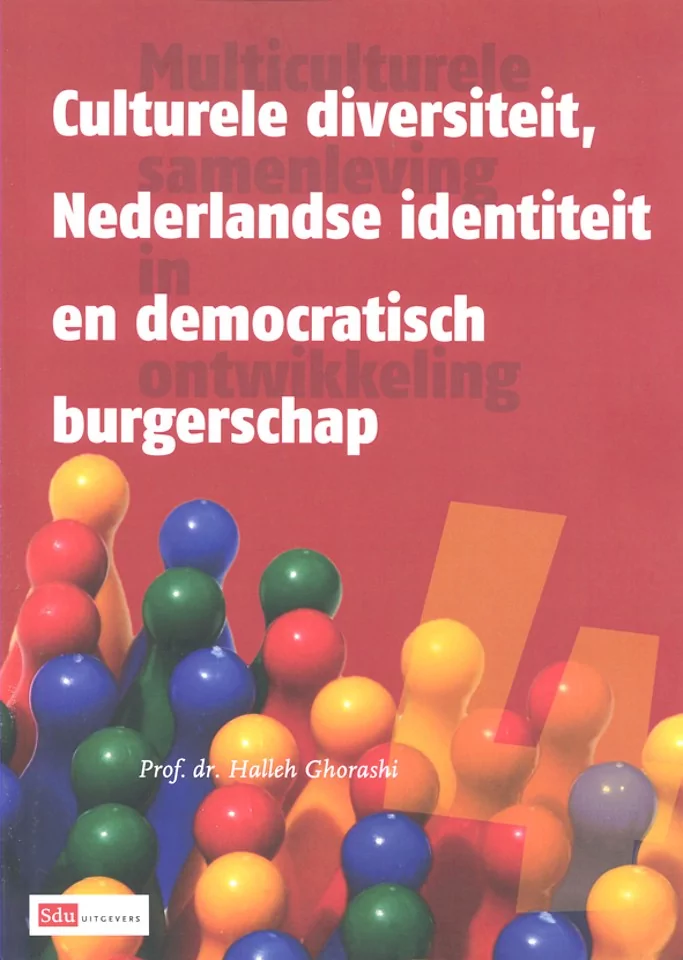
- Culturele diversiteit, Nederlandse identiteit en democratisch burgerschap.
Den Haag: Sdu Uitgevers. - The Right to be Different: The Position of Muslim Migrants in the Netherlands. In: Reza Banakar (ed.)
Rights in Context: Law and Justice in Late Modern Society. Surrey: Ashgate, pp. 163-177. - From absolute invisibility to extreme visibility: Emancipation trajectory of migrant women in the Netherlands. Feminist Review 94: 75-92.
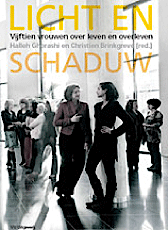
- Licht en Schaduw: Vijftien vrouwen over leven en overleven (redactie samen met Christien Brinkgreve).
Amsterdam: VU Uitgeverij. - Persoonlijke ontwikkeling en etnische identiteit (samen met Fons van de Vijver). In: Joop de Jong en Sjoerd Colijn (red.) Handboek Culturele psychiatrie en psychotherapie. Utrecht: De Tijdstroom, pp. 57-75.
- “Dutchness” and the migrant “other”: From suppressed superiority to explicit exclusion? Focaal: European Journal of Anthropology, 56: 106-111.
2009
- Demokratie und Freiheit des anderen – Warum das integrationmodell der Niederlande gescheitert ist. In: M.M. Thoss & C. Weiss (red.) Das Ende der Gewissheiten. München: Diederichs, pp. 92-108.
- The ‘Iranian Diaspora’ and the New Media From Political Action to Humanitarian Help (PDF).(Samen met Kees Boersma). Development and Change, 40(4): 667-691.
- Beyond Complicity: a plea for Engaged Ethnography (samen met Harry Wels). In: Sierk Ybema, Dvora Yanow, Harry Wels & Frans Kamsteeg (eds.) Organizational ethnography. Studying the complexities of everyday organizational life. Sage, pp.231-253.
- Antropologen en het multiculturele debat. In: T. Sunier (red.) Antropologie in een zee van verhalen. Amsterdam: Aksant, pp. 45-59.
- Polariseren in het Nederland van nu betekent olie op het vuur (PDF). In: Raad voor Maatschappelijke Ontwikkeling, Polarisatie. Bedreigend en verrijkend. Amsterdam: SWP, pp. 153-170.
Zie ook het artikel van Nelleke Noordervliet over dit rapport in Trouw
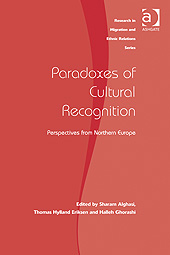
- Paradoxes of Cultural Recognition: Perspectives from Northern Europe (book edited together with Sharam Alghasi and Thomas Hylland Eriksen).
Surrey: Ashgate. - Introduction. In: Alghasi, Eriksen & Ghorashi (eds.) Paradoxes of Cultural Recognition: Perspectives from Northern Europe. Surrey: Ashgate.
- National Identity and The Sense of (Non-)Belonging: Iranians in the United States and the Netherlands. In: Alghasi, Eriksen & Ghorashi (eds.)
- Paradoxes of Cultural Recognition: Perspectives from Northern Europe. Surrey: Ashgate.
- De paradox van zichtbaarheid: in organisaties en in het veld van eergerelateerd geweld (samen met Nicole Brenninkmeijer). In: J. van der Zwaard, Janine Janssen, Saskia Keuzenkam en Fouzia Outmany (red.)
- Dwarse vrouwen: Verbinding en verbeeldingskracht. Amsterdam: Aksant, pp. 65-72.
2008
- Ruimte laten, ruimte maken en ruimte bewaken.
De kracht van zelfbeheersing: Christen Democratische Verkenningen.
Boom tijdschriften, pp. 165-173. - Fixatie op verschil biedt geen perspectief voor de toekomst. In: J.H. Gerards (red.)
- Gelijke behandeling: oordelen en commentaar 2007 (PDF). Utrecht: Commissie Gelijke behandeling, pp. 245-261.
- Culturen in beweging: democratie en veiligheid in de publieke ruimte. In: H. Boutellier & R. van Steden (red.) Veiligheid en burgerschap in een netwerksamenleving. Den Haag: Boom Juridische Uitgevers.
2007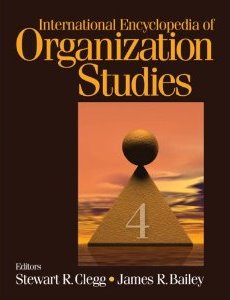
- Ethnicity. In: S. Clegg and J. Bailey (eds.) International Encyclopedia of Organization Studies.
Sage Publications. - Giving Silence A Chance: The importance of life stories for research on refugees (PDF). Journal of Refugee Studies, 21 (1): 117-132.
- Paradoxen van culturele erkenning. Management van diversiteit in een nieuw Nederland. Tijdschrift voor Humanistiek, 32(8): 49-53.
- The Paradoxes of Cultural Diversity within Organizations. The International Journal of Diversity in Organizations, Communities & Nations, 7(5): 223-229.
- Iranische Flüchtelinge in Nord-,West und Mitteleuropa seit 1980 (Beispiel Niederlande). In: K.J. Bade, P.C. Emmer, L. Lucassen, J. Oltmer (red.) Enzyklopädie Migration in Europa. Paderborn, München, Wien, Zürich/Ferdinand Schöningh,Wilhelm Fink, pp. 646-649.
- Warum hat Ayaan Hirsi Ali unrecht? In: Thierry Chervel en Anja Seeliger (eds.) Islam in Europa. Frankfurt: Suhrkamp, pp. 165-177.
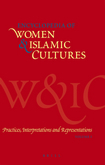
- Arts: Remembrances and Narrations.
In: Suad Joseph (General Editor)
Encyclopedia of Women and Islamic Cultures, Volume V: Practices, Interpretations and Representations.
Leiden/Boston: Brill, pp. 113. - Iranian Women’s Voices Across Borders. In: Ireen Dubel en Karen Vintges (eds.)Women, Feminism & Fundamentalism. Amsterdam: SWP Publishers, pp. 82-98.
- Who Dares to Experiment with Culture? In: Rosi Braidotti, Charles Esche, and Maria Hlavajova (eds.) Dutch Pavilion Critical Reader. Utrecht/Zürich: Bak&JPR/Ringier, pp. 125-143.
- Media bieden weinig tegenwicht aan het categorale denken. In: Huub Evers en Carmelita Serkei (red.) Naar een interculturele journalistiek: beschouwingen over media en multiculturele samenleving. Amsterdam/Utrecht: Aksant/Mira Media, pp. 64-74.
- What has the metaphor of ‘bridging’ to do with hybridity? Discourses on identity within Iranian-American organizations. In: Ajaya Kumar Sahoo and Brij Maharaj (eds.) Sociology of Diaspora: A Reader 2v.
New Delhi: Rawat Publication, pp. 542-557.
2006
- ‘Ik ben veilig maar niet gelukkig’: De impact van de verzorgingsstaat op het leven van vluchtelingen. Filosofie in Bedrijf (tijdschrift voor cultuur, management en organisatie), 71(3/4): 73-85.
- Paradoxen van culturele erkenning: Management van diversiteit in nieuw Nederland (ingekorte versie van de oratie), Tijdschrift voor Genderstudies(PDF), 9(4): 42-54.
- Iraanse vrouwenstemmen. Tijdschrift voor Humanistiek, 27: 59-73.
- “When is My Dutch Good Enough?” Experiences of Refugee Women with Dutch Labour Organisations (PDF) (together with Maria van Tilburg).
Journal of International Migration and Integration, 7(1): 51-70. - Culturalisering van de emancipatie van migrantenvrouwen (PDF). Krisis: tijdschrift voor actuele filosofie, 7(3): 42-47.
- Paradoxes of transnational space and local activism: Iranians organizing across borders (with Nayereh Tavakoli). Focaal: European Journal of Anthropology, 47: 90-102.
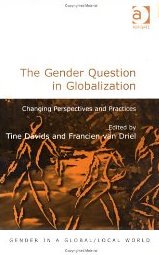
- The Gender Question in Globalization: Changing Perspectives and Practices.
Aldershot: Ashgate, p. 197-217. - Layered meanings of community: Experiences of Iranian women exiles in ‘Irangeles’. In: T. Davids, F. van Driel (eds.)
2005
- Identities and the sense of belonging: Iranian Women Political activists in Exile. In: Ph. Essed, G. Frerks and J. Schrijvers (eds.)
Refugees and the Transformation of Societies. Oxford: Berghahn Publishers, p. 106-119 (Paperback). - When the Boundaries are Blurred: the Significance of Feminist Methods in Research. European Journal of Women’s Studies, 12(3): 363-375.
- Refugees: Agents of Change or Passive Victims: The Impact of Welfare States (The case of The Netherlands) on Refugees (PDF).Journal of Refugee Studies, 18(2): 182-198.
- Shifting and Conflicting Identities: Iranian Women Political Activists in Exile. In: H. Moghissi (ed.), Women and Islam, Vol. III: 427-448. New York, London: Routledge.
- Multiculturalism and Citizenship in the Netherlands. ISIM (International Institute for the Study of Islam in the Modern World) Review, 15: pp. 10.
2004
- How dual is transnational identity? A debate on duality of transnational immigrant organizations. Culture & Organization, 10(4): 329-340.
- Identities and the sense of belonging: Iranian Women Political activists in Exile. In: Ph. Essed, G. Frerks and J. Schrijvers (eds.) Refugees and the Transformation of Societies. Oxford: Berghahn Publishers, pp. 106-119.
- Ayaan Hirsi Ali: dapper of dogmatisch? Tijdschrift voor genderstudies, 7(1): 58-63.
2003
- Iraanse vrouwen, transnationaal of nationaal? Een (de)territoriale benadering van ‘thuis’ in Nederland en de Verenigde Staten. Migrantenstudies, 3: 140-156.
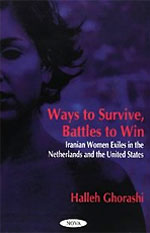
- Ways to survive, Battles to win: Iranian women exiles in the Netherlands and the United States.
New York: Nova Science Publishers (Paperback). - From Marxist Organizations to Feminism: Iranian Women’s Experiences of Revolution and Exile (PDF). The Journal of the Study of Religions and Ideologies (J.S.R.I.), special issue on Gender and/in Ideologies, no. 6: 89-107.
- Multiple Identities between Continuity and Change: The narratives of Iranian women in Exile (PDF). Focaal: European Journal of Anthropology, theme number: Multiple Identifications and the Self, T. Van Meijl en H. Driessen (eds.), no. 42: 63-75.
- Ayaan Hirsi Ali: daring or dogmatic? Debates on multiculturalism and emancipation in the Netherlands (PDF). Focaal: European Journal of Anthropology, no. 42: 163-173.
2002
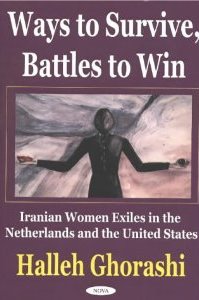
- Ways to survive, Battles to win: Iranian women exiles in the Netherlands and the United States.
New York: Nova Science Publishers (Hardcover). - Huilen, schrikken, lachen, kortom meereizen met de ander: de meerwaarde van levensverhalen binnen sociaal wetenschappelijke onderzoek. Amsterdams Sociologisch Tijdschrift, 29(1): 59-73.
2001
- ‘Tot behoud van mijn identiteit’: Identiteitsvorming binnen de zmv-vrouwenbeweging (samen met Esther Captain). In: M. Botman, N. Jouwe en G. Wekker (red.)
- Caleidoscopische visies: de Zwarte, migranten en vluchtelingen-vrouwenbeweging in Nederland. Amsterdam: Koninklijk Instituut voor de Tropen, pp. 153-187.
1999
- Verhalen als spiegels: Iraanse vrouwelijke balling onderzoekt lotgenoten. Tijdschrift voor Genderstudies, themanummer: Feministische Antropologie, kennis en representatie. 2(1): 45-54.
- Mohajerat: aghazi no dar jonbesh-e zanan? (Migratie: een nieuwe begin in de vrouwenbeweging?) Arash [Perzisch tijdschrift], 72: 32-33.
1998
- The Valley Ones: Conversations with Women Activists of the Iranian Revolution. In: Suitcase: A Journal of Transcultural Traffic, 3(1&2): 18-26.
1997
- Shifting and Conflicting Identities: Iranian Women Political Activists in Exile.
In:The European Journal of Women’s Studies, 4(3): 283-303.
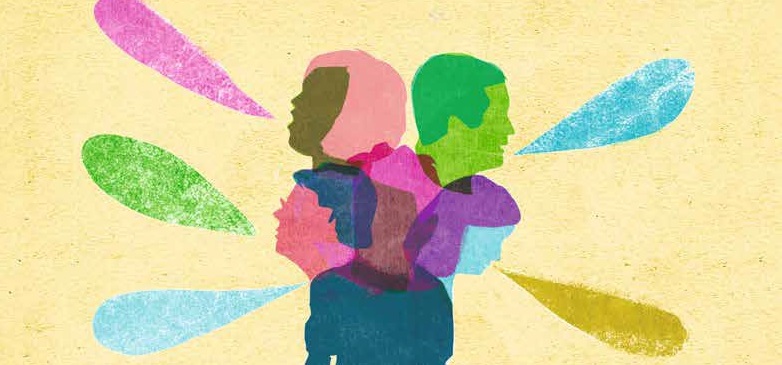
Veel progressieve Nederlanders met goede bedoelingen ten aanzien van diversiteit slagen er toch niet in hun leef- en werkomgeving diverser te maken. Dit komt door de fixatie op het anders-zijn en de vermeende achterstand van mensen met een migratieachtergrond. Hierdoor vallen deze groepen altijd buiten de boot, zelfs wanneer ze hun best doen om erbij te horen.
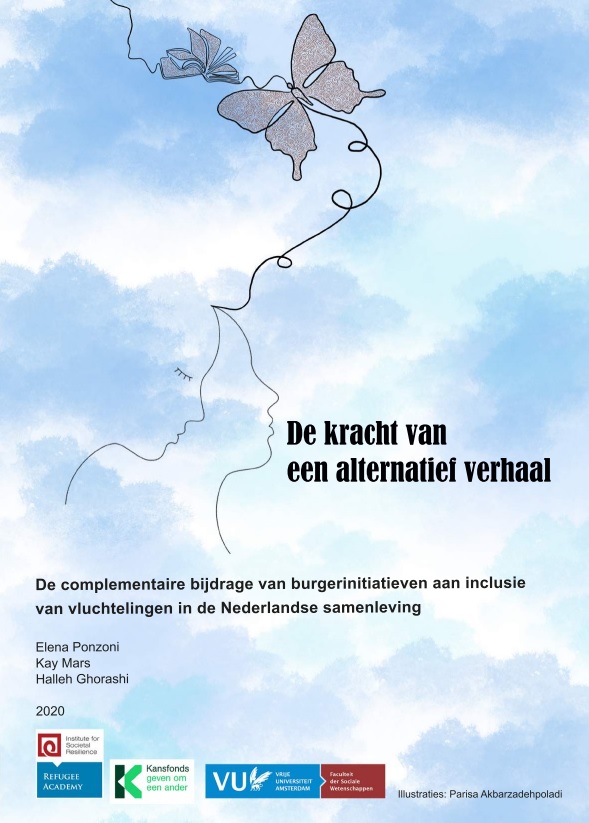
Sinds 2015 kent Nederland een golf van nieuwe initiatieven voor vluchtelingen. Naast gevestigde actoren zoals nationale en lokale overheden, bedrijven en ngo’s begonnen bewonersgroepen, actieve burgers, collectieven en kleine sociale ondernemingen zich in te zetten voor de inclusie van vluchtelingen en alternatieve vormen van engagement (Larruina, Boersma & Ponzoni 2019). Om beter zicht te krijgen op de plaats en rol van deze initiatieven begonnen wij in 2019 met het project Learning Crossroads for Refugee Inclusion: hoe verandert het ontstaan en voortbestaan van deze initiatieven het veld van opvang, inburgering en integratie?
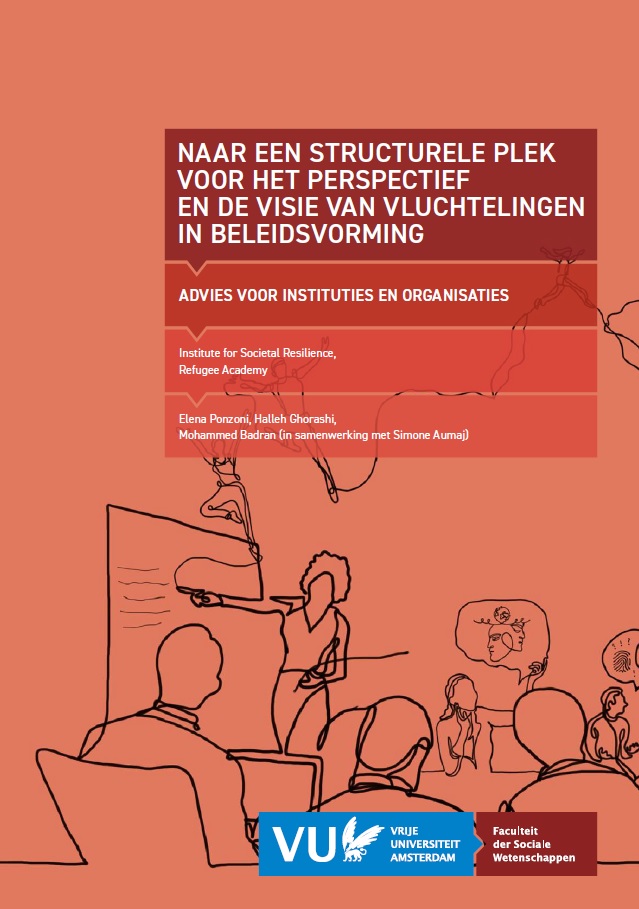
Een vluchtervaring kent vele fases die elk gevoed worden door positieve en negatieve betekenissen. Het begint met het achterlaten van alles wat vertrouwd is - je leven, je dierbaren, je omgeving – en de noodzaak om vanwege geweld een nieuw begin te maken.
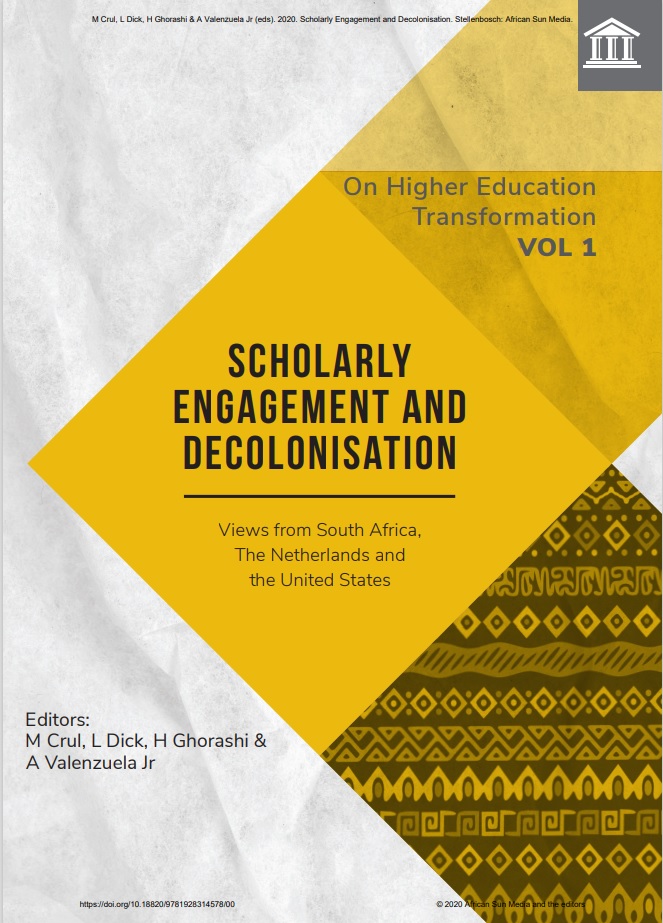
Considering that one of the core tasks of academia is to provide social critique and reflection, universities have an undeniable role to formulate the contours of a more inclusive academia in contrast to visible and normalised structures of exclusion. Translating such ambitions into transformative practices seems to be easier said than done.
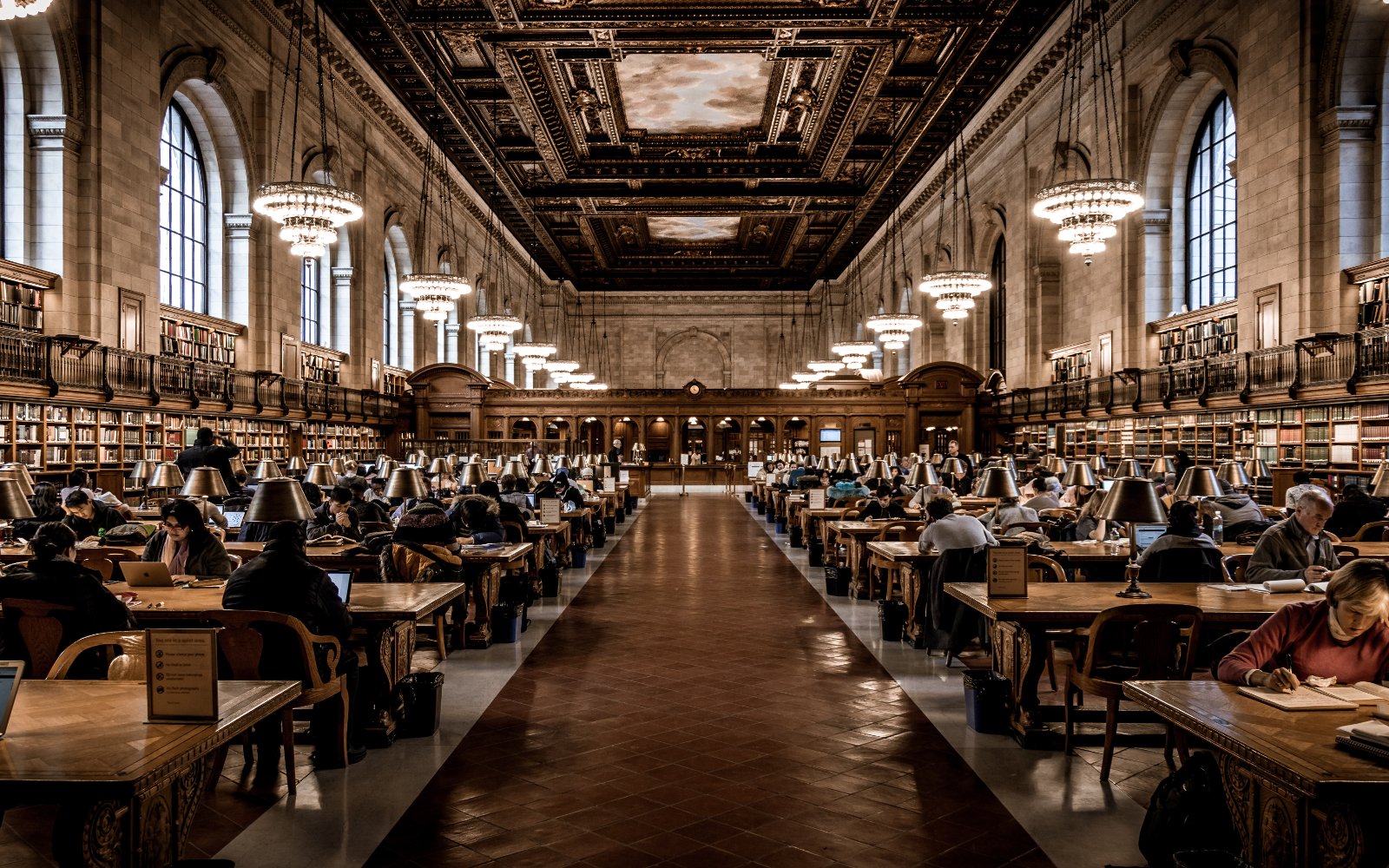
Halleh Ghorashi over de balans tussen maatschappelijk engagement en neutraliteit in de sociologie.
In 1988 kwam ik als asielzoeker naar Nederland. Als marxist ben ik actief geweest in een revolutie die later een Islamitische revolutie werd. Ik ben gevormd door de Latijns-Amerikaanse (protest)literatuur en –muziek van Lorca, Neruda en Victor Khara en door de romans van Russische en Franse schrijvers, naast politiek-filosofische teksten van Duitse denkers.
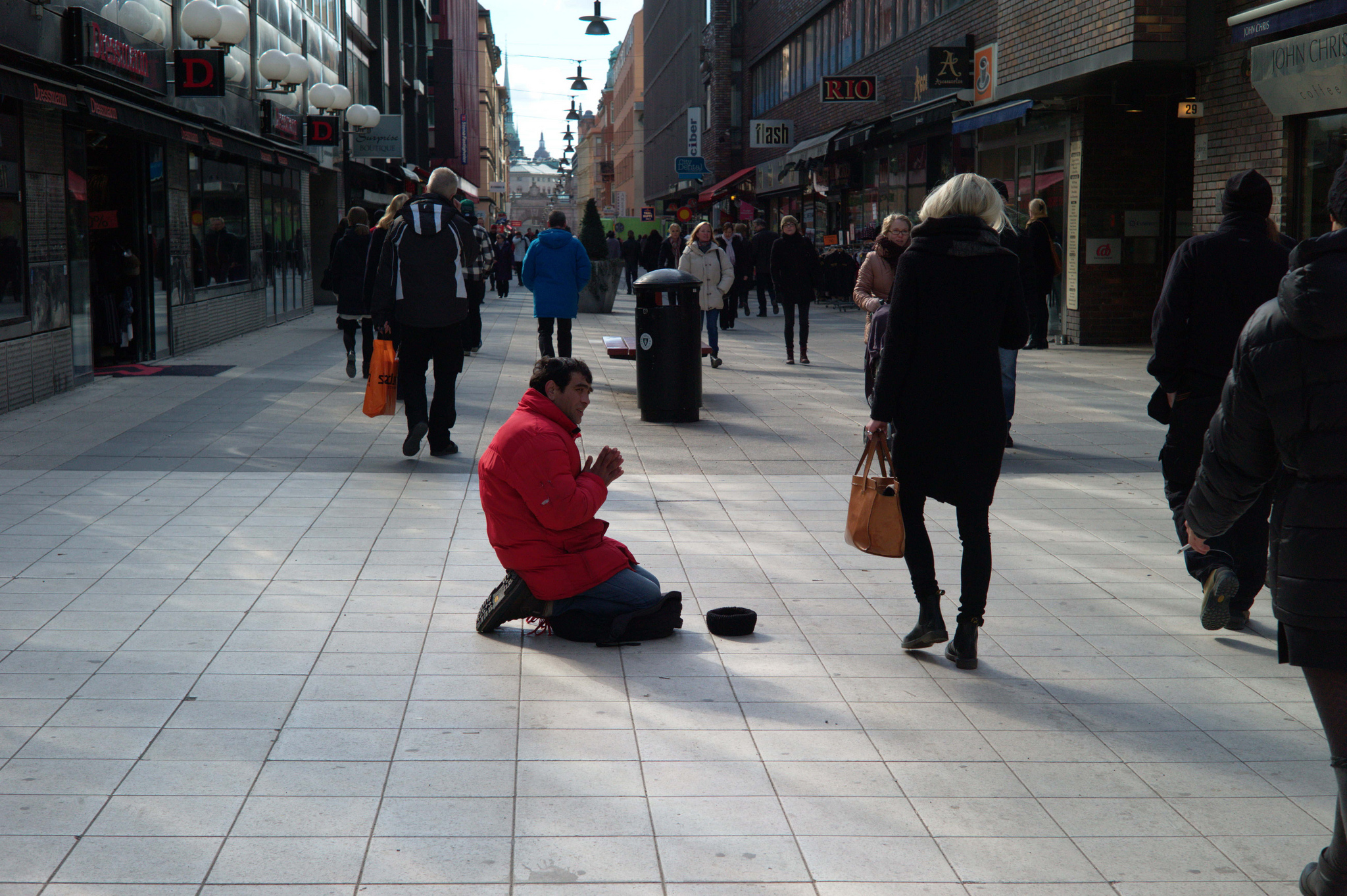
Ghorashi, H. (November 2018), Met de beste bedoelingen sluiten we migranten uit. Sociale Vraagstukken.
We leggen de nadruk te veel op verschillen en te weinig op wat we gemeenschappelijk hebben met migranten, stelt Halleh Ghorashi. Onbedoeld leidt dit tot uitsluiting. Hoe kunnen we ervoor zorgen dat verschillen ons verrijken in plaats van beangstigen?
Lees meer: Met de beste bedoelingen sluiten we migranten uit
Lezing: Reflectie op het boek “Kieswijzer levensbeschouwing” van prof. dr. Andre Droogers, Spui25 Amsterdam, 6 april 2017.
Meteen op de eerste pagina lees je al veel lof over het boek. “Fantastisch”, “geweldig”, “relevant”, “origineel” en “een must read voor gelovigen en ongelovigen”. Dit is natuurlijk mooi, maar, zo dacht ik bij mijzelf, wat kan ik hieraan nog toevoegen? Laat mij in ieder geval zo beginnen: Kieswijzer levensbeschouwing is een bijzonder boek van een bijzondere man.
Lees meer: Reflectie op het boek “Kieswijzer levensbeschouwing”
Ghorashi, H. (June 2017), Patricia Hill Collins: Veilige ruimte voor zelfdefinitie. (PDF) Sociologie Magazine, p. 29.
Vanaf het begin van mijn academische carrière ben ik gefascineerd door identiteitsvraagstukken. Ongetwijfeld gevoed door mijn achtergrond als vluchteling. Zo heeft Giddens mij gevoed om identiteit te zien als 'the narrative of the self'. Mijn narratief als ex-activist gaf mede vorm aan mijn identiteit als wetenschapper, steeds heb ik me als een geëngageerde wetenschapper gepositioneerd. Een wetenschapper die door academische kennis te verbinden met leefwerelden van mensen probeert de verbeeldingskracht door onderzoek te verruimen.
Ghorashi, H., B. Reitsma & Z. Kovacs (2017, 10 April), in Sociale vraagstukken: Van small talk naar een waardevolle buurtgemeenschap.
Light communities ontstaan doordat mensen samen gemeenschappelijke problemen willen oplossen. Sociologen Halleh Ghorashi, Baukje Reitsma en Zsuzsa Kovacs onderzochten de betekenis van de Amsterdamse community Meevaart. De zeer diverse bewoners blijken via small talk betekenisvolle contacten aan te gaan die hun horizon verruimen.
Lees meer: Van small talk naar een waardevolle buurtgemeenschap
Voed de veerkracht van vluchtelingen, op KIS website.
Hebt u wel eens nagedacht over wat het betekent een nieuwe kans te krijgen om te leven? Sluit uw ogen, sta even stil, probeer te voelen wat deze vraag met u doet. Denkt u aan alle dingen die u anders zou willen doen? Voelt u de energie die daarbij loskomt? Dit is wat veel vluchtelingen ervaren als ze noodgedwongen op weg gaan naar een nieuw land.
Bij de Nederlandse Parlementsverkiezing, op Brainwash: Er valt iets te kiezen vandaag en dat is…
Deze verkiezingen zijn misschien wel spannender dan ooit. Er staat iets op het spel, vandaag. Laten we onze angsten spreken, of we gaan opnieuw bedenken wat ons bindt in Nederland? Kunnen we tegenwicht bieden aan het groeiende onbehagen in ons land? Kiezen we voor eenvormigheid of diversiteit? Dat zijn de vragen die voor mij centraal staan. We gaan zien of we ons voldoende hebben laten wakker schudden.

"A timely addition to the post 9/11 scholarship on Muslims in the west, these lively essays illuminate a rich mix of issues that shape and define the everyday experiences of diasporic Muslims, as well as exploring the stereotypical disjunctures between Muslim and secular law. This collection provides a fresh focus on understanding the complexities of family, gender and youth cultures and the necessity of including them in any study on Muslims in the modern world.'
Amina Yaqin, University of London, UK
Over filosoof Emanuel Levinas, Brainwash Festival 21-28 October 2016
Nadenken over je eigen denken. Dat is waar filosofie ook over gaat. Maar, hoe dan? De komende weken doet Brainwash een aanzet, door denkers aan het woord te laten over de filosofen die van grote invloed op hen zijn geweest. Deze keer hoogleraar Diversiteit en Integratie Halleh Ghorashi.
Kans op een nieuw leven (PDF) In: De Helling: tijdschrift voor politiek en cultuur, 29(1): 57-61.
Wat als iedereen migrant zou zijn?, op KIS website.
Ik wil beginnen met de stelling dat iedereen een migrant zou kunnen zijn. Of zelfs dat iedereen een migrant is zonder zich dat te realiseren. Laten we met de tweede stelling beginnen.